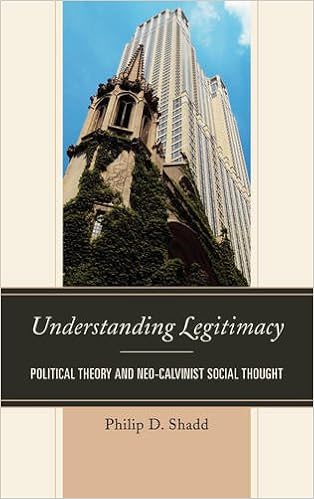The Evangelical Age of Ingenuity in Industrial Britain
Joseph Stubenrauch
Oxford: Oxford University Press, 2016
ISBN: 9780198783374
Hbk, 304pp, £65.00
Publisher’s website here
British evangelicalism is now a flourishing area of research - thanks largely to David Bebbington’s seminal work and efforts. Bebbington’s quadrilateral has dominated the research area. Stubenrach’s work is an important addition - it covers in more detail areas that have previously been covered by large brushes strokes. Bebbington identified the influence of Romanticism and the Enlightenment on evangelicalism. Stubenrauch develops this idea identifying areas in which Romanticism had an impact of Evangelicalism and vice versa:
‘ … Evangelicals must be understood as contributing to the development of Romanticism, rather than being influenced by it in the decades after its heyday’ (98).
Not only that but Stubenrauch shows the almost symbiotic relationship between evangelicalism and modernity. In particular, he focuses on the work of the Religious Tract Society (RTS).
In his introduction he expands Bebbington’s quadrilateral into a pentagon with the addition of the workings of the Holy Spirit as an additional vertex; sadly, this aspect is not developed in the rest of the book. But what he does do in keeping with the five point theme is look at the roles of urbanisation, mass production, literacy, mobility, and consumerism. He poses the fascinating question: was evangelicalism a component part of modernity? His aim is to examine the role of evangelicals in the industrial age and he does this through the five areas mentioned.
In chapter 1 he develops another five points: agency, instrumentality, interdenominalisation, postmillennial optimism, and sentimentalism. All of which shaped Evangelicalism from the period of the French Revolution to the Great Exhibition in 1851. The sentimentalism is an influence of Romanticism. This can be seen in the work of Revd Legh Richmond (1772–1827) and in particular in his tract The Dairyman’s Daughter. [1] The 52-page book told the story of the religious experience of Elizabeth Wallbridge on the Isle of Wight. The book was published by the Religious Tract Society (RTS) as tract No 9 in 1825, which was later part of a book called Annals of the Poor. This and similar material is the focus of Chapter 2. Richmond’s work led to Christian tourism around the Isle of Wight and the visiting of gravestones as a devotional activity. This rise in Christian sentimentality was in part attributed to the rejection of Calvinism (89). The RTS and others were able to capitalise on this sentimentalism by producing numerous souvenirs, miniature books, tracts, guidebooks, travellers accounts, jigsaw and stereoscopic photographs. As Stubenrauch puts it:
‘Evangelical sentimentalism did not just have affinities with consumerism; its desires spurred the creation of actual products that furthered this religious mode’ (93).
Chapter 3, Hawking the Gospel’, looks in more detail at the role of the RTS and Stubenrauch makes good use of, as yet underutilised, primary sources as such as RTS executive committee minutes. Although spreading the gospel was primary the RTS weren’t unaware of the economic aspects. Stubenrauch notes:
‘Religious commitment and the logic of “means” overlapped with commercial strategy …’ (115).
Design, paper quality, price were all considered in their production of tracts and they saw the distribution of tracts by the hawkers who made a small profit from them, as a means of social betterment. The RTS in a way were commercial entrepreneurs.
Urbanisation and social mobility have been seen as some of the causes of secularisation, but here, in Chapter 4, Stubenrauch shows that the RTS embraced them both as a means of distributing their tracts.
Chapter 5, ‘Faithful Monitors’ examines the numerous religious decorations produced, these included biblical texts on pottery, wall maps, and wall hangings. Clergy it seemed became the ‘home decoration gurus’ of their time!
The final chapter looks at Evangelical responses to the Great Exhibition. What is surprising is the almost exclusive endorsement of it. It was seen not as worship of the idol of progress, but as an anticipation of the day when the earth would be full of the knowledge of the Lord, and as a means of spreading the gospel. This shows how evangelicals of their time adopted a pragmatic instrumental means approach to the gospel. The Evangelical Magazine even accused those who described it as a Babel as being ‘chargeable with the grossest calumny’ (239). The Revd J.A. Emerton even compared it to the New Jerusalem!
The strengths of the book are that it draws upon important primary sources and it shows the relationship of evangelicalism with Romanticism and modernity. An approach that seems to be one of accommodation.
[1] The Dairyman's Daughter can be read here http://www.gutenberg.org/ebooks/19615
Contents
Introduction: The Evangelical Revolution
1: Wise in Their Generation : Evangelical Ingenuity and Enterprise
2: Leaves of Edification : Material Means and Evangelical Sentimentalism in Practice
3: Hawking the Gospel: Evangelical Means in the Marketplace
4: Sprung up like the gas lights : Urbanization, Trade Networks, and Mobility
5: Faithful Monitors: Religion on the Walls
6: The Crystal Jerusalem: Evangelical Methodology and the Great Exhibition
Conclusion
Bibliography
1: Wise in Their Generation : Evangelical Ingenuity and Enterprise
2: Leaves of Edification : Material Means and Evangelical Sentimentalism in Practice
3: Hawking the Gospel: Evangelical Means in the Marketplace
4: Sprung up like the gas lights : Urbanization, Trade Networks, and Mobility
5: Faithful Monitors: Religion on the Walls
6: The Crystal Jerusalem: Evangelical Methodology and the Great Exhibition
Conclusion
Bibliography













